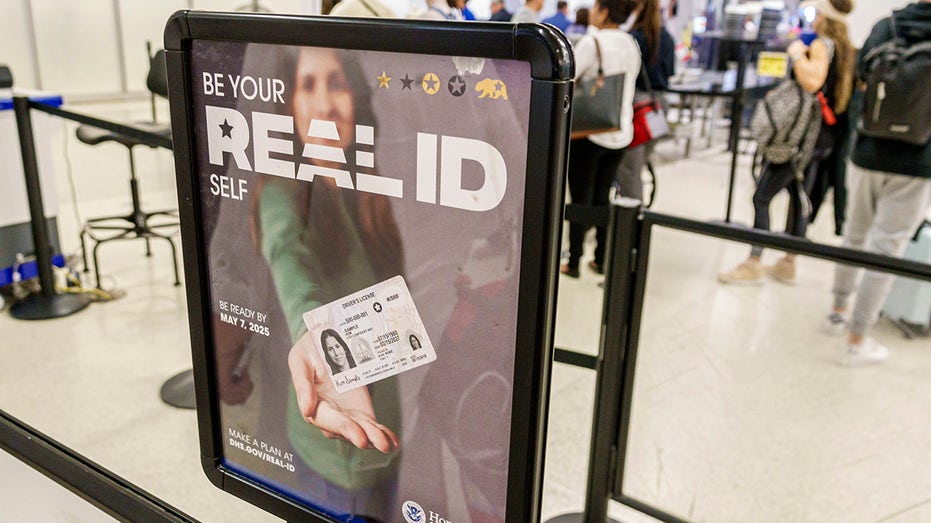Residents of New Jersey are voicing their concerns regarding the ongoing scarcity of appointments for the state’s Real ID program. As more people look to obtain this essential identification, complaints have mounted over the delays and lack of availability, prompting many to demand urgent action from state officials.
The Real ID initiative was established to enhance security standards for state-issued identification, allowing individuals to travel domestically and access federal buildings with greater ease. Aimed at improving identification verification, this program was developed in response to the post-9/11 security landscape, where many states were compelled to adopt more rigorous identification measures.
However, as the program has rolled out in New Jersey, significant roadblocks have been encountered. Citizens have expressed their frustration with the system as appointments for obtaining a Real ID remain in critically short supply. Long wait times and a lack of accessible scheduling options have led many in the Garden State to feel that they are being left behind in the digital age.
A variety of complaints have surfaced on social media platforms, with many residents taking to these channels to air their grievances. “It’s 2023, and I can’t even get an appointment for a simple ID. Get with the times, NJ!” one user commented, capturing the sentiments of many who are waiting frustratingly for the chance to upgrade their identification.
As a federally mandated program, Real ID requires states to meet certain standards for issuing identification. In New Jersey, residents have been encouraged to obtain a Real ID by October 2023, the deadline set for compliance with federal regulations. However, with countless individuals unable to secure an appointment, the looming deadline has only increased anxiety among residents.
Particularly as travel resumes post-pandemic and residents prepare for holiday trips, the absence of accessible Real ID appointments has raised concerns regarding the potential chaos at airports and federal buildings. Without a Real ID, individuals will need to present alternative forms of identification, which may not be as readily accepted.
To exacerbate the situation, many residents are struggling with the online scheduling system that is supposed to facilitate the appointment booking process. Glitches, slow response times, and limited appointment slots have left many feeling exasperated and uncertain about when they will be able to acquire their Real ID.
Some residents have reported success in obtaining appointments by checking the system frequently or opting for early morning slots, but these strategies often feel like an exhausting game of luck rather than a straightforward process. “I’ve been trying for weeks, and every time I log on, there’s just nothing available. It feels hopeless,” shared another frustrated resident.
In response to these widespread complaints, state officials have acknowledged the challenges residents are facing. The New Jersey Motor Vehicle Commission announced plans to expand appointment availability and improve the online booking system in the coming months. They encouraged residents to remain vigilant and continue checking the website regularly, promising that more appointments would be released.
Despite these assurances, many individuals are skeptical about the effectiveness of these measures. “Words don’t mean much when you’re stuck without an ID. They need to show us they’re actually doing something,” remarked one concerned citizen.
Moreover, the Real ID situation in New Jersey has underscored broader issues related to government services and technology adoption. Last year’s pandemic forced many jurisdictions across the nation to shift to digital platforms, with varying degrees of success. However, for New Jersey residents seeking Real ID appointments, the system has yet to reflect the efficiency many have come to expect in today’s increasingly digital world.
The backlog of appointments is not just a minor nuisance; it reflects systemic issues that can affect citizens’ daily lives. With a Real ID, individuals not only gain enhanced travel privileges but also facilitate smoother interactions in various governmental and private sectors. The frustration over obtaining such a basic yet vital piece of identification illustrates how bureaucratic hurdles can significantly affect residents’ freedoms and opportunities.
As the deadline approaches, advocacy groups are urging state officials to take immediate action to streamline the appointment process. “The state needs to prioritize this issue and allocate more resources to get the job done. No one should be denied access to a basic form of identification simply because they can’t secure an appointment,” said a representative from a local advocacy organization.
In a climate where personal identification is essential for numerous aspects of life—including travel, healthcare, and financial transactions—New Jersey residents are rightfully calling for more responsive governance. The significant demand for Real IDs has prompted questions about how efficiently state agencies can adapt to meet the needs of their constituents.
The experience of New Jersey residents highlights an overarching sentiment found throughout the nation: citizens expect their governments to keep pace with technological advancements while delivering accessible services. As states implement new identification programs, the focus must remain on creating user-friendly processes and minimizing frustrations for residents. Ensuring that citizens can obtain necessary forms of identification seamlessly is not merely an administrative task but an essential obligation to uphold rights and freedoms within society.
In an era of increased mobility and globalization, New Jersey’s struggle with the Real ID appointments serves as a reminder of the importance of effective public service. As residents continue to sound off about their difficulties, state officials are urged to prioritize solutions that will alleviate the bottlenecks that stand in the way of residents obtaining their IDs.
With the deadline fast approaching, the time for action is now. As citizens rally for change, there is hope that the state will heed their call and implement necessary measures to improve the Real ID appointment process—allowing residents to secure the identification they need to engage fully in their daily lives.
































